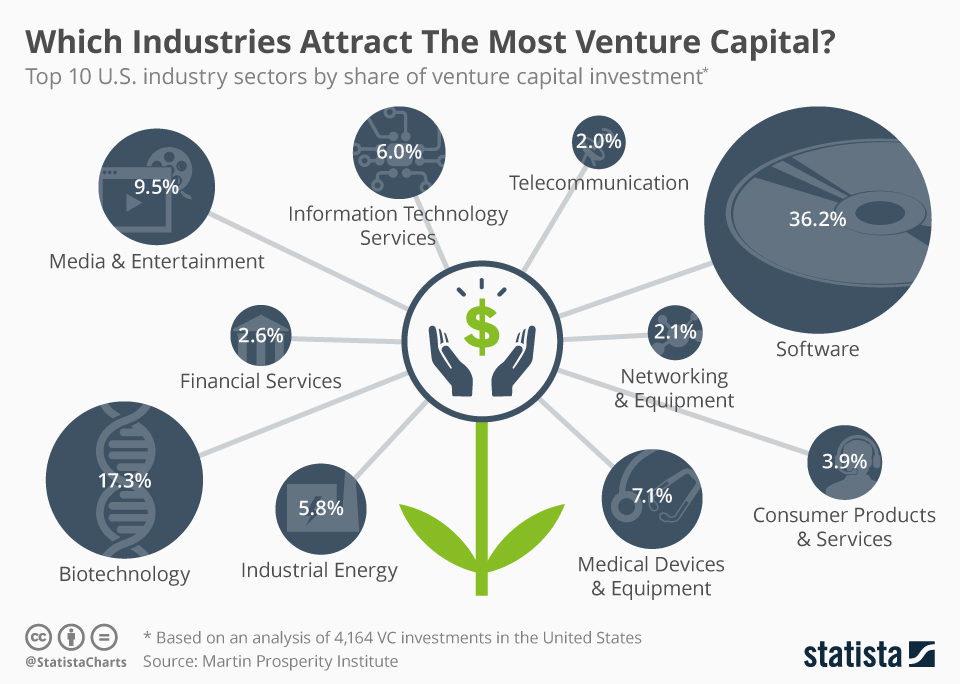Venture capital investment, a cornerstone of the entrepreneurial ecosystem, is more than just a financial transaction; it’s a journey filled with excitement, risk, and potential rewards. In today’s fast-paced world, where innovation drives progress, venture capitalists play a crucial role in supporting and nurturing groundbreaking ideas and startups.

Introduction to Venture Capital Investment
Venture capital investment involves the provision of funds to early-stage, high-potential startups in exchange for equity stakes. Unlike traditional financing methods, such as bank loans or public offerings, venture capital focuses on businesses with significant growth potential but limited operating history.
Understanding Venture Capitalists
Who are venture capitalists?
Venture capitalists are investors or firms that provide capital to startups and small businesses in exchange for ownership stakes. They typically seek high returns on their investments and are willing to take significant risks in pursuit of innovation and growth.
How do they operate?
Venture capitalists raise funds from institutional investors, such as pension funds, endowments, and wealthy individuals. They then deploy these funds by investing in startups with promising ideas, scalable business models, and competent management teams.
Importance of Venture Capital Investment
Venture capital investment plays a pivotal role in driving innovation, fueling economic growth, and creating employment opportunities. By providing capital to early-stage ventures, venture capitalists enable entrepreneurs to turn their visions into reality and bring disruptive products and services to market.
Driving innovation
Venture capital investment encourages experimentation and risk-taking, leading to the development of groundbreaking technologies and solutions that address pressing societal needs.
Fueling growth
Startups backed by venture capital funding can accelerate their growth trajectories by scaling their operations, expanding into new markets, and attracting top talent.
Job creation
Successful startups often become engines of job creation, generating employment opportunities and stimulating economic activity in their respective industries.
Key Steps in the Venture Capital Investment Process
The venture capital investment process typically involves several key steps, including:
- Identifying promising startups: Venture capitalists scout for innovative startups with disruptive ideas and strong growth potential.
- Due diligence: Before making investment decisions, venture capitalists conduct thorough due diligence to assess the viability and scalability of the target business.
- Negotiating terms: Once a promising opportunity is identified, venture capitalists negotiate investment terms, including valuation, ownership stake, and governance rights.
- Post-investment support: After making an investment, venture capitalists provide ongoing support and guidance to help startups navigate challenges and capitalize on growth opportunities.
Challenges Faced by Venture Capitalists
Despite the potential for high returns, venture capital investment is not without its challenges. Venture capitalists must contend with:
- High risk: Many startups fail, resulting in the loss of invested capital.
- Uncertain returns: The success of venture capital investments is highly unpredictable and can vary widely from one portfolio company to another.
- Market volatility: Economic downturns and shifts in market dynamics can impact the performance of venture capital portfolios.
Strategies for Successful Venture Capital Investment
To mitigate risks and maximize returns, venture capitalists employ various strategies, including:
- Diversification: By spreading their investments across a diverse portfolio of startups, venture capitalists can reduce the impact of individual failures.
- Thorough research: Conducting rigorous due diligence and market analysis helps venture capitalists identify promising investment opportunities and avoid potential pitfalls.
- Building strong partnerships: Cultivating relationships with entrepreneurs, industry experts, and other stakeholders can provide valuable insights and support throughout the investment lifecycle.
Case Studies of Successful Venture Capital Investments
Examples of notable investments
- Uber: Venture capital firm Benchmark was an early investor in Uber, contributing to the company’s rapid growth and global expansion.
- Facebook: Accel Partners made a strategic investment in Facebook during its early stages, playing a pivotal role in the social media giant’s ascent to prominence.
Impact on the market
These successful investments not only generated substantial returns for venture capitalists but also transformed entire industries and reshaped the competitive landscape.
The Future of Venture Capital Investment
As technology continues to evolve and new markets emerge, the landscape of venture capital investment is constantly evolving. Emerging trends such as artificial intelligence, blockchain, and biotechnology present exciting opportunities for venture capitalists to capitalize on innovation and drive positive change.
Conclusion
Venture capital investment is a dynamic and rewarding endeavor that fuels innovation, fosters economic growth, and empowers entrepreneurs to realize their dreams. While it entails inherent risks and challenges, the potential for transformative impact and substantial returns makes venture capital an indispensable engine of progress in today’s interconnected world.
Unique FAQs
- What criteria do venture capitalists use to evaluate startup opportunities?
- Venture capitalists assess factors such as market potential, competitive advantage, founder expertise, and scalability when evaluating startup opportunities.
- How do startups benefit from venture capital investment?
- Startups benefit from venture capital investment by gaining access to capital, expertise, and networks that can accelerate their growth and success.
- What are the typical terms of a venture capital investment deal?
- Venture capital investment deals typically involve the exchange of equity ownership in the startup for funding, along with negotiated terms regarding valuation, governance, and exit strategies.
- What are the risks associated with venture capital investment?
- Venture capital investment carries inherent risks, including the potential for startup failure, market volatility, and uncertain returns.
- How can entrepreneurs attract venture capital investment?
- Entrepreneurs can attract venture capital investment by presenting compelling business ideas, demonstrating market potential, and building a strong team with relevant expertise and experience

